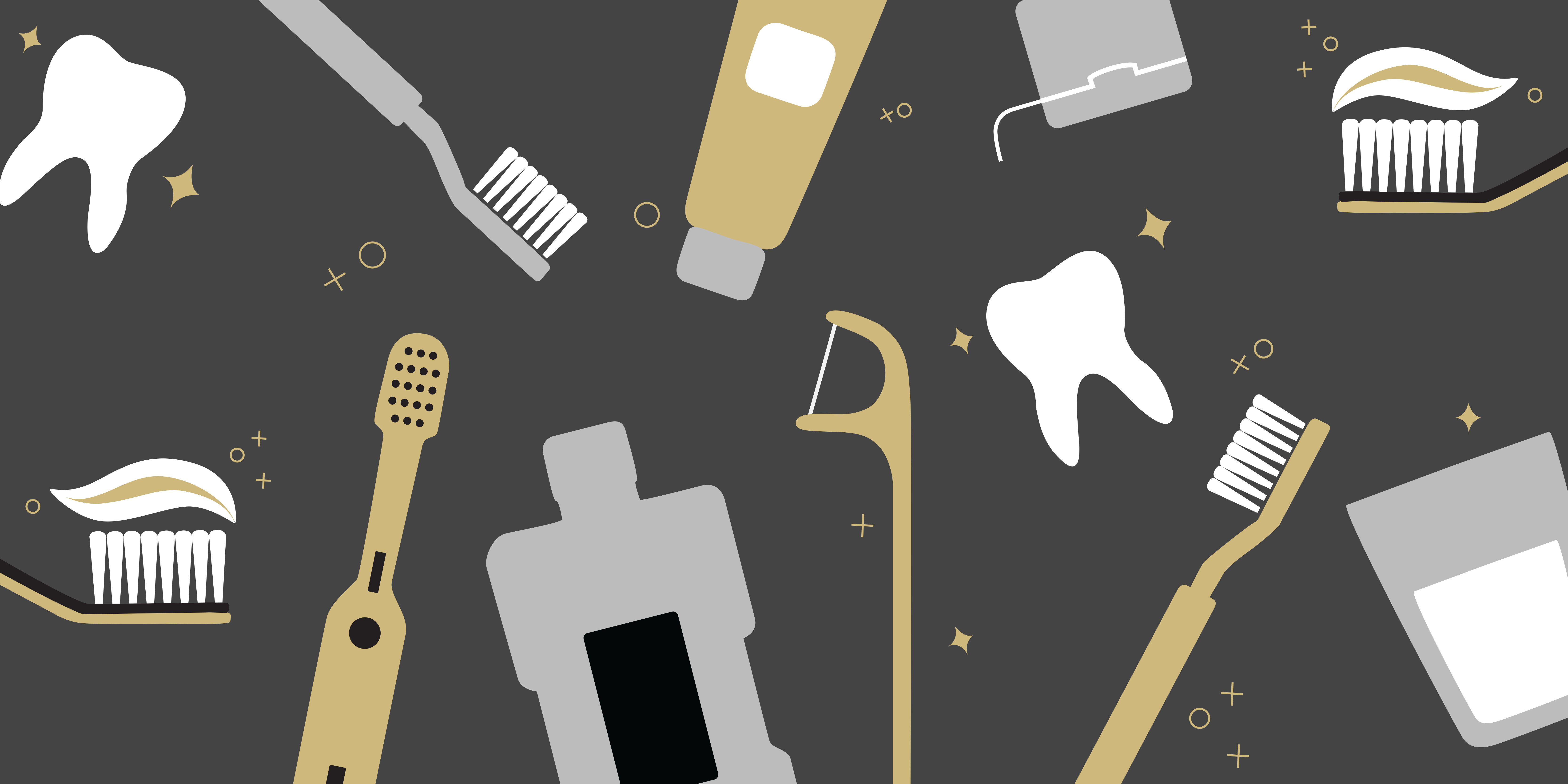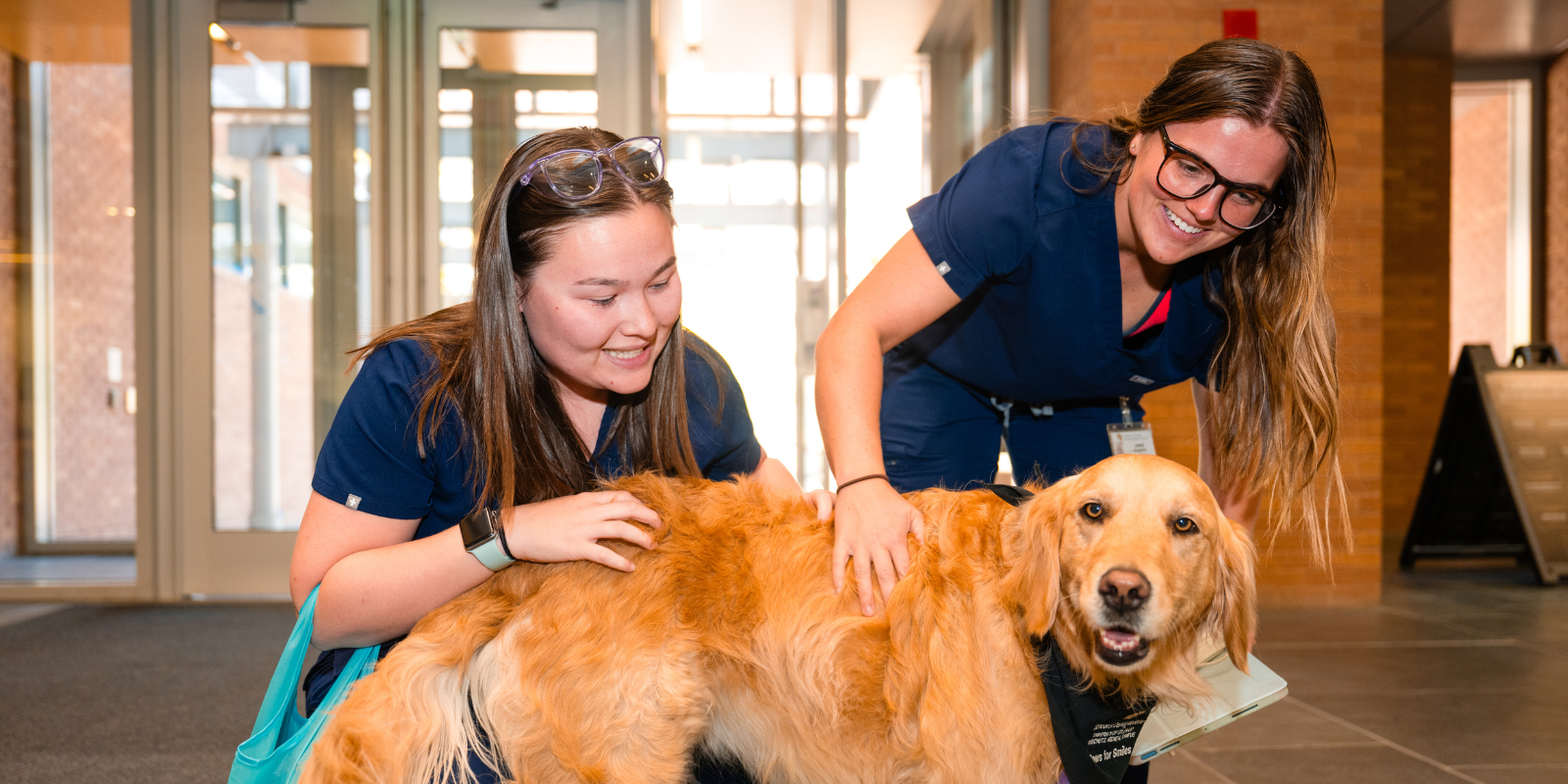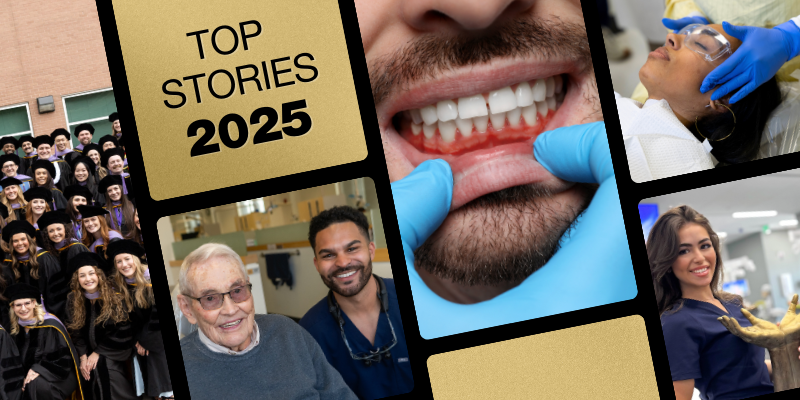Looking for an easy way to boost your health and wellbeing this year? Start with your teeth! Regular dental check-ups not only brighten your smile but also support your overall health.
We recently talked with Professor Micaela Gibbs, DDS, MHA, associate dean of clinical affairs and professional practice at the University of Colorado School of Dental Medicine. Gibbs believes setting a resolution to start the year by seeing your dentist is a great step toward better health.
Key Reasons to Resolve to See Your Dentist
Your whole body’s health depends on it. Historically, oral and physical health have been treated separately, but research shows they are deeply interconnected. There is a strong connection between oral health and systemic health, particularly in relation to chronic diseases like diabetes and coronary disease.
“Inflammation can start in our gums, in the form of gingivitis and periodontal disease, and can impact nearly every organ system in the body. We are only beginning to understand how certain pathogens can affect the liver, bloodstream and other systems,” said Gibbs. “For example, coronary artery disease involves the narrowing of blood vessels. When bacteria circulate through the bloodstream over time, they can worsen coronary artery disease by causing inflammation. These inflamed spots become areas where plaque can develop, increasing the risk of stroke, heart attack and other serious conditions.”
Not having mouth pain does not mean everything is okay. Many of us assume if we do not have pain in our mouths, there is nothing wrong. But this is a misconception. Periodontal disease, or gum disease, is an inflammation and infection of the tissues supporting the teeth. It can require care from a specially trained dentist called a periodontist. Nearly half of adults in the United States have some form of gum disease, and many people are asymptomatic.
“Periodontal disease, and the burden of bacteria it produces, can put you at a higher risk for developing stroke, heart attack and other related conditions,” she said. Additionally, regular dental checkups can also help detect more serious diseases, such as cancer. “If oral cancer isn’t caught early, it can progress rapidly and become life-threatening. A comprehensive dental exam is not just about addressing tooth pain—it is also about identifying risks for other conditions, such as cancer, diabetes and a range of other oral health issues."
Periodontal disease requires the care of a specialist. A general dentist can refer you to a periodontist, such as the professionals in CU’s Graduate Periodontics Clinic.
Dental problems will not go away on their own. Ignoring your dental issues will not make them go away. Gibbs uses the example of a cut on your hand. If it becomes infected, your body’s natural defense systems will typically resolve it after a while.
"It doesn’t work that way with your mouth. Once you have a cavity, it only gets worse. The sooner you address a dental issue, the less pain you’ll experience, and the more likely you’ll be able to save your teeth and maintain better health in the long run,” she said.
Brushing and flossing are not enough. Gibbs emphasizes that regular dental visits are essential, even for those who brush and floss twice a day. These visits are crucial for addressing tartar buildup, which cannot be removed through brushing alone.
"You can’t keep your teeth as clean as they need to be for optimal dental health without a professional cleaning” Gibbs said. “Calculus, commonly known as tartar, accumulates on your teeth and can’t be removed with a toothbrush—you need a professional dental visit in order to eliminate it.”
Better Habits for a Healthier Life
Gibbs said that we do not need to aim for perfection when it comes to creating better habits in the new year. In addition to quitting smoking and drinking less alcohol, Gibbs offers the following advice.
- Choose to eat better. Good nutrition supports health by strengthening the immune system and reducing the risk of gum disease. Nutrient-rich foods like fruits, vegetables, legumes and nuts fight bacteria and inflammation, while crisp options like apples, carrots and celery help clean teeth and freshen breath. Plus, certain foods should be avoided depending on an individual’s needs. For example, hard or sticky candies can break a bracket if you are receiving orthodontic treatment.
"Your nutrition is really important, so choose healthy foods whenever you can. If you do have something sweet make sure to brush your teeth afterward. If brushing isn’t an option in the moment, at least rinse your mouth with water. The mechanical action of swishing helps remove food debris, which can help.” - Water is your best choice. Carbonated drinks like soda and even seltzer water are highly acidic and can damage teeth. Soda is the worst due to its high sugar content, which feeds cavity-causing bacteria. Drinking water rinses your mouth and helps you stay hydrated, which encourages the production of saliva. Older adults in particular may produce less saliva, due to medications or certain health conditions.
“Drinking plenty of water is critical. Saliva not only contains antibodies that help fight cavities but also washes away bacteria from your teeth,” she said. “At night, only keep water at your bedside. Anything that has any kind of sugar will sit on your teeth overnight and will accelerate the process of developing cavities.” - Don’t sip on sugary drinks all day long. Gibbs advises those who drink soda or coffee with sugar to finish them and be done. With the increasing consumption of specialty coffee and energy drinks among teens and adolescents, education provided by the Adolescent Dental Clinic is more important than ever.
“Don’t sip on it all day. Your body begins to respond by trying to neutralize the sugar and restore balance once it’s out of your mouth. Antibodies, natural enzymes and your body’s pH regulation system work to counteract the effects. But if you sip on it throughout the day, you’re continuously exposing your mouth to sugar, preventing it from effectively responding."
Professional and Affordable Care Options
Gibbs understands that people may be hesitant to seek care and emphasizes that dental professionals are trained to identify and address issues without judgment, so there is no need to feel embarrassed or scared about seeking treatment.
“Since this is a learning institution, the cost of care here is much lower than it would be at a private dentist. Given how damaging periodontal disease and oral conditions can be to overall health, we can help people access the care they need, which may otherwise be out of reach due to cost,” she said.
The CU School of Dental Medicine clinics offer affordable, comprehensive care options for patients throughout the Denver metro area. Learn more about our clinics or request an appointment by calling (303) 724-6900.



